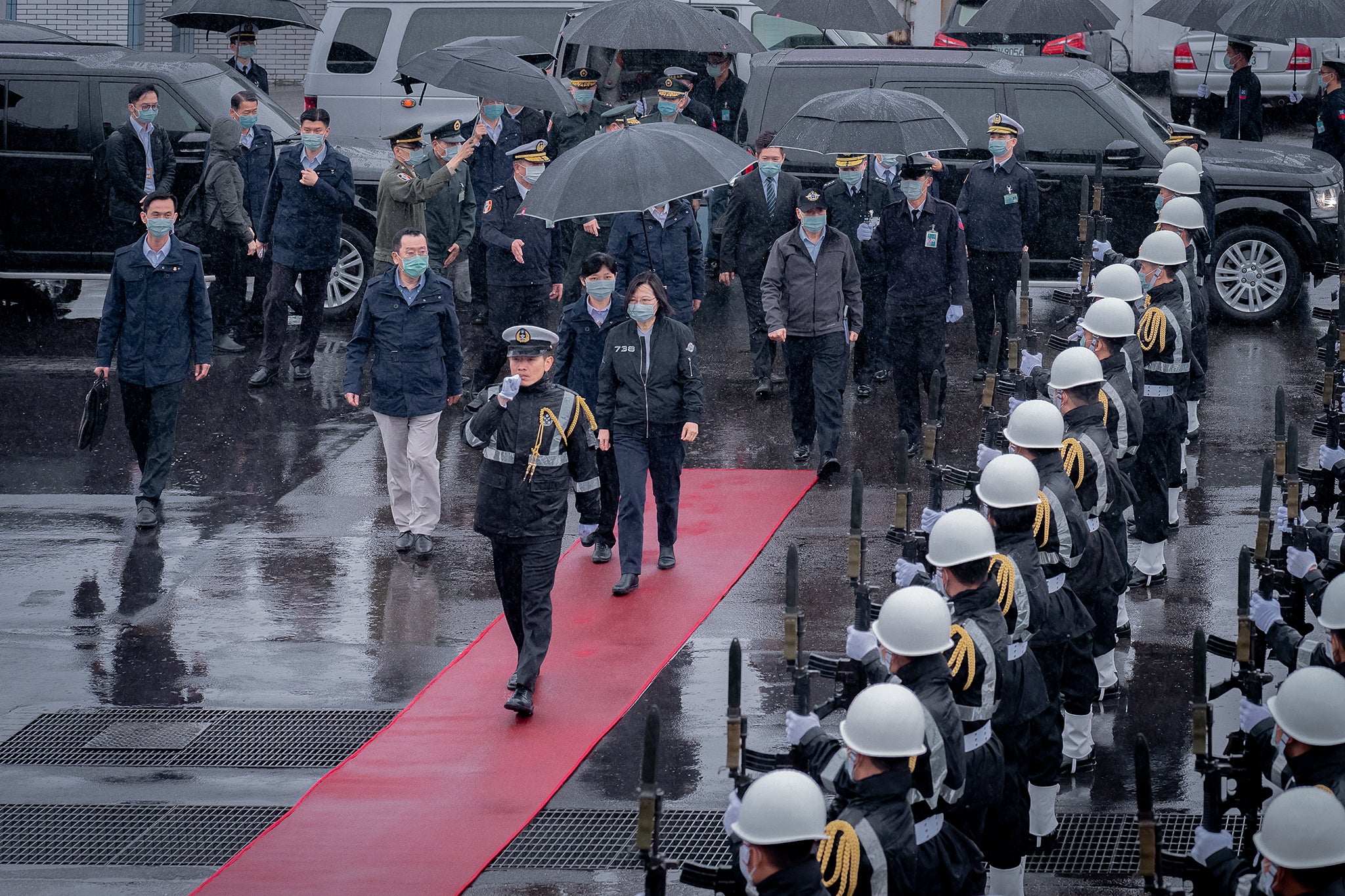Top US admiral says China could invade Taiwan ‘in the next six years’
Beijing has repeatedly claimed that Taiwan is an inalienable part of its territory and threatened military action

A top US admiral has warned that China could invade Taiwan in the next six years amid the growing conflict between the two Asian nations.
Admiral Philip S Davidson, who is the US’s top military officer in the Asia-Pacific region, on Tuesday appeared before the Senate’s armed services committee and said that China is accelerating its ambitions to supplant the US and its leadership role in “the rules-based international order” by 2050.
“Taiwan is clearly one of their ambitions before that,” he cautioned, saying Beijing’s determination to take control of the island by force if necessary could manifest in the next decade or even “the next six years”.
During his testimony before the committee, Admiral Davidson said China has adopted an increasingly assertive military posture to exert pressure and expand its influence across the region – saying this was “particularly stark concerning Taiwan.”
He said that over the past year, Beijing has pursued a “coordinated campaign of diplomatic, informational, economic, and - increasingly - military tools to isolate Taipei from the international community and if necessary, compel unification” with China.
The concerns underlined by the US admiral are similar to the ones voiced by Taipei over the past year, compounded by frequent intrusions by Chinese aircraft into its air space.
Davidson said that throughout 2020 the Chinese army has “amplified its force posturing near and around Taiwan” to exert pressure and signal its resolve.
“On the diplomatic front, Beijing continues to impede Taiwan’s meaningful participation in international organisations. In 2020, Taiwan was blocked from participating as an observer in the annual World Health Assembly despite its success in managing the Covid-19 pandemic,” he said.
While Beijing maintains Taiwan is an inseparable part of China, Taipei has increasingly taken steps to grow closer to countries such as the US, India and others to assert independence – something that has irked Beijing.
The US admiral said that the greatest danger for the US is the erosion of conventional deterrence, without which China will “be emboldened to take action in the region to supplant US interests.”
“As the military balance in the Indo-Pacific becomes more unfavourable to the US, we are accumulating additional risk that may embolden our adversaries and competitors to attempt unilaterally changing the status quo,” he said.
During the Trump administration, the US’s close cooperation with Taiwan including fresh arms deals was a bone of contention between it and China. The new Biden administration has given indications of continuing that support, including a formal invitation to Taiwan’s de facto ambassador to the US to Mr Biden’s inauguration in January 2021.
China has repeatedly warned the US against stoking the fire as far as Taiwan is concerned. On Tuesday, China’s foreign ministry spokesperson Zhao Lijian emphasised that China’s position on Taiwan is “consistent and clear.”
He underlined that "Taiwan is an inalienable part of China’s territory… China remains resolutely determined to defend national sovereignty and territorial integrity, and opposes Taiwan independence and external interference.”
“We urge the US side to earnestly abide by the one-China principle and the provisions of the three China-US joint communiques, stop official interactions with and arms sales to Taiwan, handle Taiwan related issues prudently and properly, and avoid sending any erroneous signals to the Taiwan independence forces, lest it should damage China-US relations as well as peace and stability across the Taiwan strait,” said Mr Zhao.
Subscribe to Independent Premium to bookmark this article
Want to bookmark your favourite articles and stories to read or reference later? Start your Independent Premium subscription today.

Join our commenting forum
Join thought-provoking conversations, follow other Independent readers and see their replies